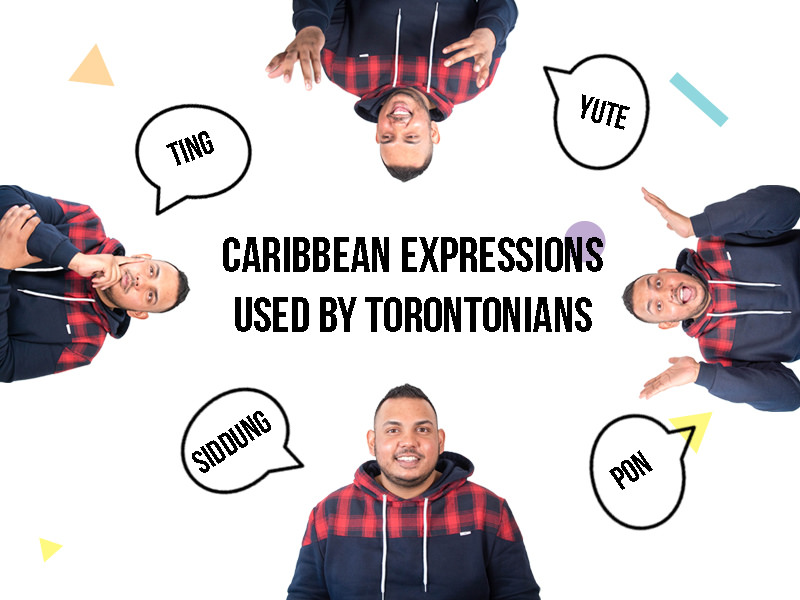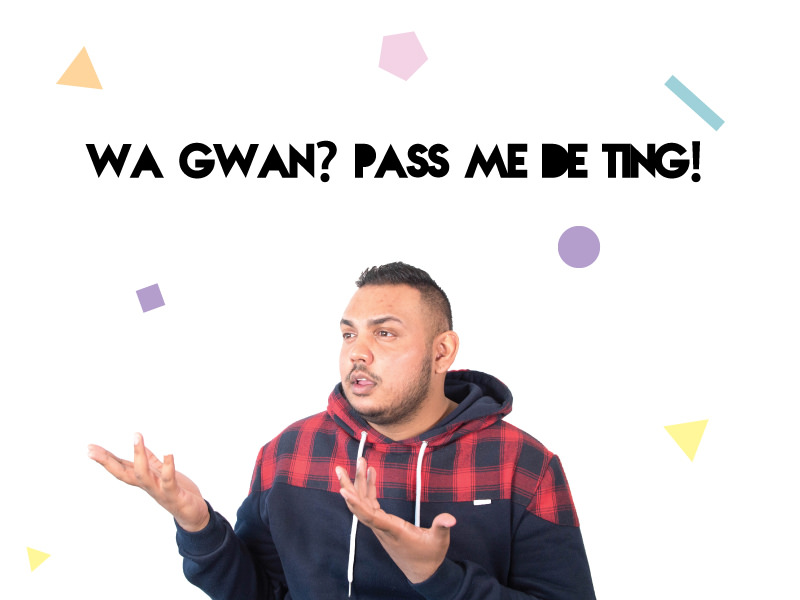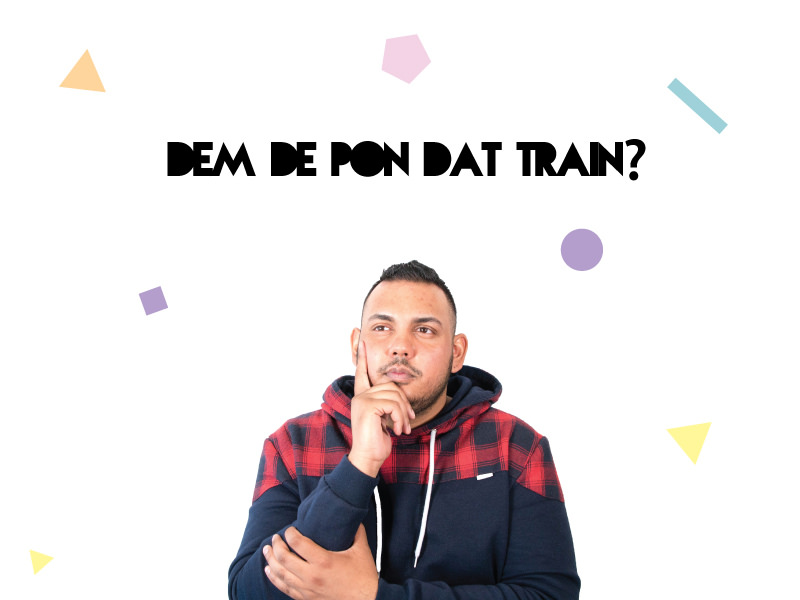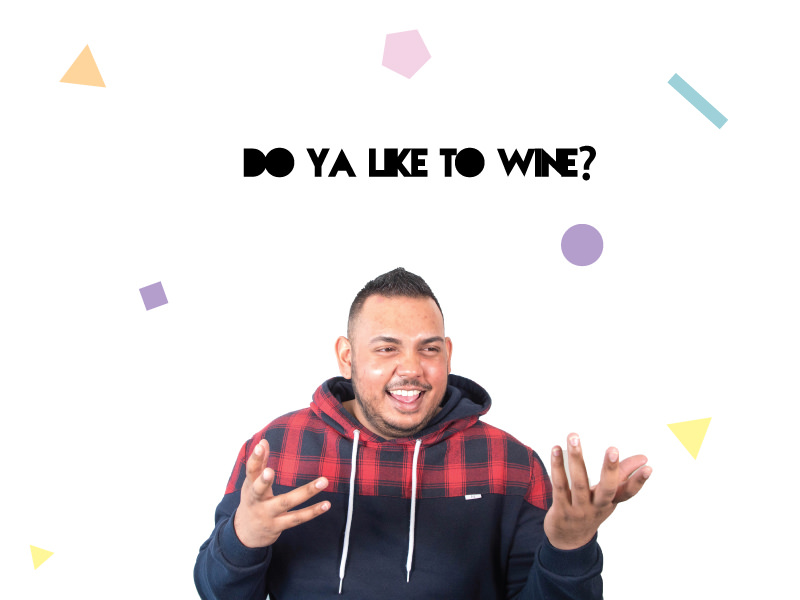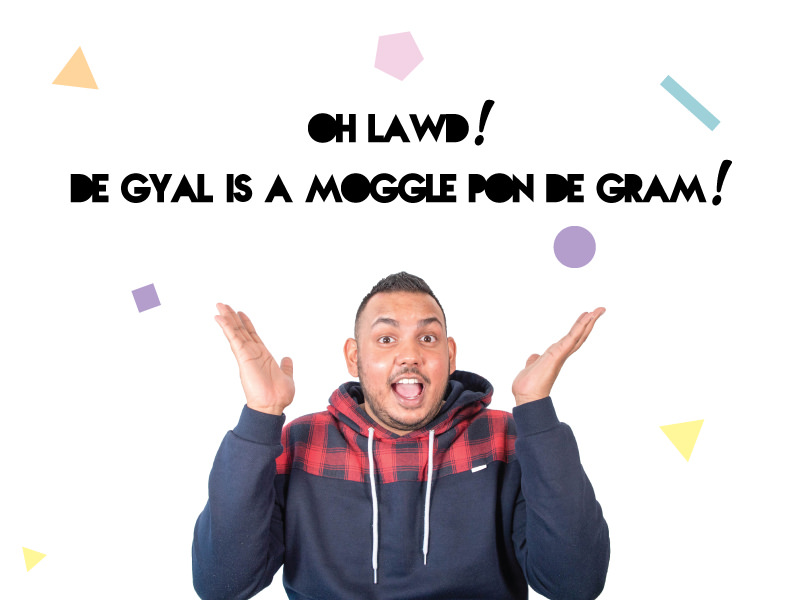|
By Josha Shivprashad Growing up as a first generation Canadian hailing from a Guyanese background in the mid 90’s and 2000’s, the intertwines of culture and language have always been something that played a significant role in my life and daily experiences. Even though much of the Caribbean does speak English, amongst many other diverse languages, it is much different from the variety that we are used to. In my opinion it’s spicy, flavourful, and very unique. Fast forward to 2018 and Caribbean phrases that seem to be universal are now popping up all over the place, especially in music, resulting in a hybridity of linguistics incorporated in our everyday use. The Basics: Wa Gwan, Ting, Bai, Gyal Let’s start with the basics. Words like ‘Bwoiye/Boi/Bai’ and ‘Gyal/Gal’ are terms we use to mean boy and girl, male and female. ‘Ting’ is every West Indian parent’s favourite word to describe anything (living or non). Anything can be a ting and everything is a ting, like “pass me de ting”. The only way you’ll know what they are talking about is if you are looking at the same ‘ting’ they are. This has translated into Toronto culture seamlessly; if you hear someone say ‘ting’, just know they can be talking about anything. ‘Wa gwan’ and ‘Wa ham’ are greetings that combine “hello” and “how are you” into one translating to “what’s going on”. Stepping It Up: De, Pon, Dat, Dem Now let’s step it up a bit. Words like ‘de’, ‘pon’, ‘dat’ and ‘dem’ are smaller words that tend to get attached to phrases. ‘De’ means ‘the’, ‘pon’ translates to ‘on’/’at’. So if you hear someone say “Pon de train”, this simply translates to “on the train”. Remember that variation I talked about earlier though? “Pon” is one of those words that has the complex multiuse meaning. So “Look pon de train” means “Look at the train”. ‘Dat’ means ‘that’ and ‘dem’ means ‘them’. “Dem de pon dat train” translates to “They are on that train”. A Little More: Tun Up, Wine Up, Nyam, Badmind ‘Tun Up’ is a short version of the phrase ‘turn up’, which basically means to have a good time or party. ‘Wine up’ or ‘wining up’ is a form of dance (not to be confused with twerking), which is the movement of the waistline in a circular motion. ‘Nyam’ means ‘eat’. So if you hear someone say “Nyam food” it means “eat food”. ‘Badmind’ simply refers to someone with a bad-mind, meaning ‘jealousy’. Everything In Between : Lawd, Likkle, Dutty, Cuss, Moggle, Yute Here are a few words that sound similar to their English counterpart and pretty much mean the same. ‘Lawd’, often used as ‘Oh Lawd’ translates to ‘Oh Lord’. ‘Likkle’ means ‘little’ where the k’s replace the t’s. ‘Dutty’ is dirty, which you’ll hear in a lot of music. ‘Cuss’ is to ‘curse’, which means to say a profanity (but we won’t get into the actual cuss words here). ‘Moggle/Maggle’ means ‘model’. If you hear “De gyal is a moggle pon de gram” it means, “The girl is a model on the gram. “Yute” originates from the word “youth” and can be used when talking about peers or someone younger then you. For instance, “De Yute dem are…” means “The youth them are…”.
These terms and words have found their way into the vocabulary of the yute dem of our society. Where many people may view them as slang, they are not. These words and terms are authentic and hail from a culture of richness and diversity. Though I have only provided a few, these expressions are unique tools that display how Toronto’s cultural mosaic contains smudging at the corners, resulting in an overlap of culture where one can easily dip in and out of for a taste! |
Recent Posts
|
|
GET THE APP!
Listen to VIBE 105 anywhere you go!
|
OUR STATION
|
TUNE IN RADIO
|
STAY CONNECTED
|
Copyright © 2021 Canadian Centre for Civic Media and Arts Development Inc. Except where otherwise noted, presentation of content on this site is protected by copyright law and redistribution without consent or written permission of the sponsor is strictly prohibited.


